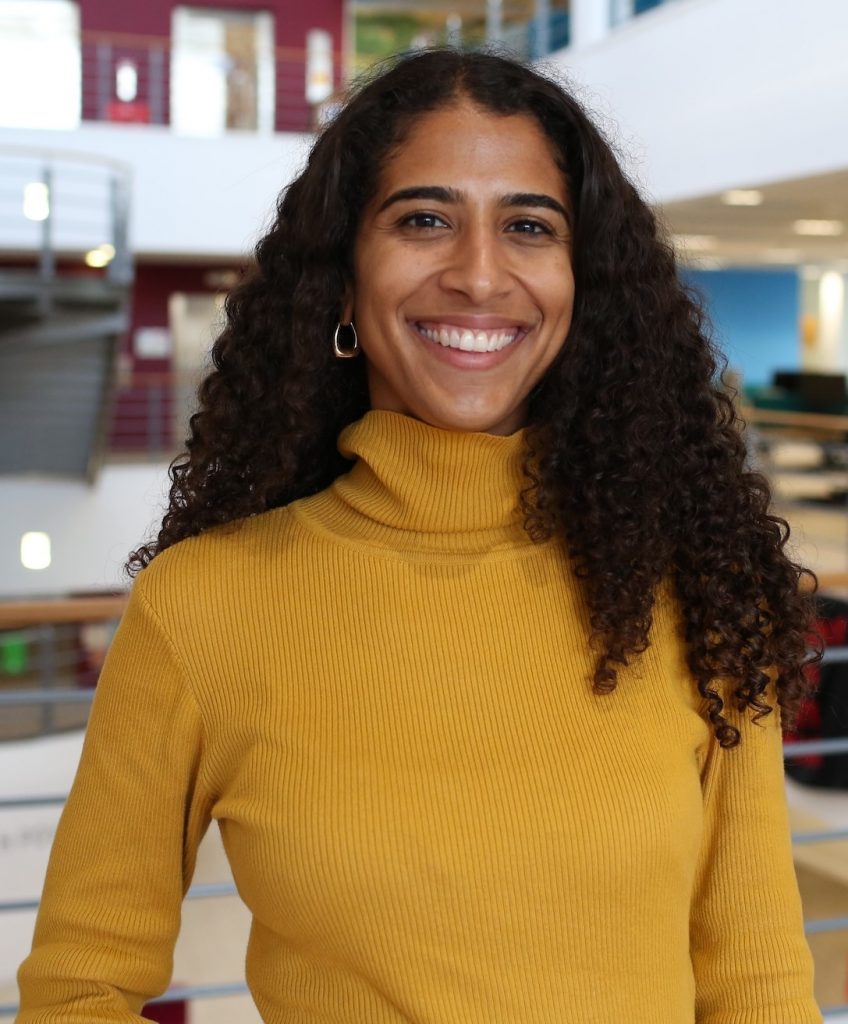

Oxfam GB racial justice lead Rhaea Russell-Cartwright reflects on how far Oxfam and similar UK-based organisations have come and what they should think about next to deliver on racial justice – including the implications of racist riots in Britain, the need for solidarity across borders and ensuring that celebrations of this month centre the experiences of our Black staff.
It’s that time of year when so many UK organisations leap to show something often conveniently forgotten: how much they care about Black staff and Black British history. It’s a time when we will see a flurry of communications and star guest speakers on panels. Welcome to Black History Month, when you usually try to make sure someone can see you are just doing, you know, something.
But for those of us who have to navigate the reality of race and racism in both our day-to-day lives and in our jobs, this month can too often mean having to revisit the personal and professional traumas of the past as well as confront the tough challenges of the future. Each October, many of us inside organisations find ourselves forced to reflect on the battles fought and on the internal resistance and obstacles to progress that will undoubtedly persist after the month ends.
How can we move beyond the panels, posters and warm statements to conclusively transforming the reality across our sector? There are no easy answers, but here I offer four reflections from my work as Oxfam’s racial justice lead that I hope are helpful.
1. Black Lives Matter was a pivotal movement
Undeniably, the gruesome and widely streamed murder of George Floyd in 2020 and the resurgence of the Black Lives Matter movement was the impetus for change that compelled Oxfam and countless other organisations into moving on from a tired and often tokenistic commitment to DEI (Diversity, Equity and Inclusion) to acknowledging and seeking to tackle structural racism, how it operates within our own walls and, most importantly, how it has been endemic across the international development and aid sector.
Of course, before 2020, conversations about colonial practice and racist mindsets had long filled corridors up and down the sector, spurred by the critical and significant works and activism of #AidToo, #CharitySoWhite, #PolicySoWhite. And here at Oxfam we had Oxfam’s own safeguarding failures of 2018, which rightly led to calls for accountability for the abuses of power and in particular, racial and sexual power abuse that have long plagued the sector.
But Black Lives Matter in 2020 brought a new urgency and shift in mindset on a problem that the international development and aid sector had failed to address for years.
This month marks the fourth year of Oxfam GB’s explicit commitment to become an anti-racist organisation. That we and others are four years into a journey gives those of us who work in racial justice mixed feelings: challenged by how far we have to go but also keenly aware of the invaluable formal and informal learnings for us and our peer organisations along the way.
2. This year felt like a step backwards in the UK – but there were also signs of hope
This year, many people of colour in the UK who in recent years had felt, somewhat, safe in our streets, had that security ripped out from beneath us with racist, Islamophobic riots across the country in August. Behind this lay years of racist and anti-migrant rhetoric and policy, including the hostile environment and Windrush scandal which laid the roots for the violence. Given the resurgence of widespread racist violence that many thought was firmly in the past, it is it is difficult to know how we should feel about race in Britain in this year’s Black History Month.
But the violence was met with mass mobilisations against racism, against Islamophobia and against xenophobia – showing us the very best face of Britain. For organisations that work for racial and social justice, and who seek to build alliances and solidarity in this fight, that should give us hope.
3. We need to learn from and connect struggles across the global diaspora
This year will be the 140th anniversary of the infamous Berlin Conference that carved up Africa into European colonies and it also brings the conclusion of the UN International Decade for People of African Descent that speaks to the shared experiences of the African diaspora across the globe.
Both anniversaries remind us, alongside the diversity of experiences, there is a shared history affecting the Black diaspora that crosses the borders and continents of Africa, Latin America and the Caribbean. It is a shared history that connects those of us of African descent in Europe and North America with the rest of the diaspora. The historic inequities triggered by the transatlantic slave trade still reproduce across the globe today.
So to understand Black history in the round, organisations interested in racial justice, especially global organisations such as Oxfam, need to start conversations and build solidarity across borders.
That is exactly what we did in the week following the racist riots, when we had the privilege to welcome Afro Brazilian women from our partner organisation the Instituto Afrolatinas who for over 17 years have been working to promote the history, memory, and cultural heritage of the Black diaspora. In fact, they considered postponing their visit due to fears for their safety. I also visited the institute in Brasília (one of the most unequal states in Brasil) as part of our ongoing learning exchange to reflect and share each other’s work and context. Their response has stuck with me: “We are here to uplift the Black experience”.
What was clear from our time together in the UK and Brazil is that, alongside the unique challenges of every Black community, there are also shared experiences affecting the Black diaspora. It’s vital that this shared experience is reflected in a collective global struggle for recognition and justice.
4. You can’t celebrate Black history without centring your Black staff and racial justice
Black History Month must put Black people and particularly Black staff at its heart. Otherwise, it can seem performative: a PR exercise that does little to change real lives. We can be left wondering are you talking about me for me, or are you talking about me, for them?
If you bring in external practitioners, leaders and thinkers to talk about issues affecting Black communities yet you treat Black colleagues and Black leaders poorly, that is a waste of time. Treating people well starts with giving them permission to show up fully as themselves. If people feel they have to mask aspects of their identity, or feel excluded by your organisational culture and practices, then you are very much part of the problem.
And as well as centring the needs of Black staff you have to make Racial Justice a core and constant thread in your work. That means recognising racism as a central injustice and resisting calls to sideline it. The broader equality movement has been haunted for years with whataboutism. We too, have been subjected to comments of the type that begin: “Can we talk less about race and more about …”.
But the answer is not to stop talking about race, nor is it to ignore all the many other forms of oppression: instead we as organisations need to talk about racial justice in an intersectional way. And the Black experience has always been intersectional (see here, here and here).
The theme for Black History Month 2024 is “reclaiming the narrative”. For NGOs and other progressive organisations that means centring and listening to the narratives and stories of the Black experience in all of its nuance and complexity; it means understanding and platforming the stories of Black communities and partners from across the global diaspora. This year, let Black History Month be the start of a transformation in the sector: one that swaps warm words for real action on racial justice.
Happy Black History Month!

Rhaea Russell-Cartwright is racial justice lead at Oxfam GB